
Antonio Serra was a late 16th-century Italian philosopher and economist in the mercantilist tradition.

Antonio Serra was a late 16th-century Italian philosopher and economist in the mercantilist tradition.
Little is known about Serra's life. He was born in Cosenza in the late 16th century (the dates of his birth and death are unknown [1] ). When working in Naples, he applied himself to solving the enormous social and economic problems created by the Spanish viceroy system. In 1613 Serra was jailed for unknown reasons but possibly due to his involvement in a conspiracy with the philosopher Tommaso Campanella attempting to free Calabria from the Spanish domination.
In his treatise, Breve trattato delle cause che possono far abbondare li regni d’oro e d’argento dove non sono miniere, Serra analysed the causes of the shortage of coin in the Kingdom of Naples and the factors that could have reversed this economic trend. He was the first to analyse and fully understand the concept of balance of trade for both visible goods and invisible services and capital movements. He explained how the shortage of coin in the Kingdom of Naples was due to balance of payments deficit. Using his findings he was able to reject the popular idea at the time that the scarcity in money was due to the exchange rate. The solution to the problem was found in the active encouragement of exports.
He also found the cause of difference between poor Naples and rich Venice in that Venice had industry with increasing returns while Naples only had agriculture and primitive artisanry with no such advantages.

Fra. Luca Bartolomeo de Pacioli was an Italian mathematician, Franciscan friar, collaborator with Leonardo da Vinci, and an early contributor to the field now known as accounting. He is referred to as the father of accounting and bookkeeping and he was the first person to publish a work on the double-entry system of book-keeping on the continent. He was also called Luca di Borgo after his birthplace, Borgo Sansepolcro, Tuscany.
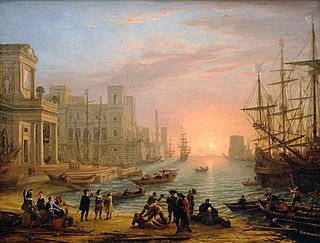
Mercantilism is a nationalist economic policy that is designed to maximize the exports and minimize the imports for an economy. In other words, it seeks to maximize the accumulation of resources within the country and use those resources for one-sided trade.
The Price Revolution, sometimes known as the Spanish Price Revolution, was a series of economic events that occurred between the second half of the 15th century and the first half of the 17th century, and most specifically linked to the high rate of inflation that occurred during this period across Western Europe. Prices rose on average roughly sixfold over 150 years. This level of inflation amounts to 1.2% per year compounded, a relatively low inflation rate for modern-day standards, but rather high given the monetary policy in place in the 16th century.
In European history, the commercial revolution saw the development of a European economy – based on trade – which began in the 11th century AD and operated until the advent of the Industrial Revolution in the mid-18th century. Beginning c. 1100 with the Crusades, Europeans rediscovered spices, silks, and other commodities then rare in Europe. Consumer demand fostered more trade, and trade expanded in the second half of the Middle Ages. Newly forming European states, through voyages of discovery, investigated alternative trade routes in the 15th and 16th centuries, which allowed European powers to build vast, new international trade networks. Nations also sought new sources of wealth and practiced mercantilism and colonialism. The Commercial Revolution is marked by an increase in general commerce, and in the growth of financial services such as banking, insurance, and investing.

Ferdinando Galiani was an Italian economist, a leading Italian figure of the Enlightenment. Friedrich Nietzsche referred to him as "a most fastidious and refined intelligence" and "the most profound, discerning, and perhaps also the filthiest man of his century."
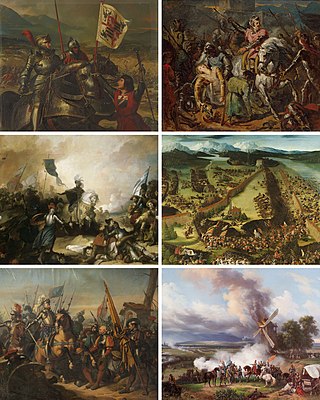
The Italian Wars were a series of conflicts fought between 1494 and 1559, mostly in the Italian Peninsula, but later expanding into Flanders, the Rhineland and Mediterranean Sea. The primary belligerents were the Valois kings of France, and their Habsburg opponents in the Holy Roman Empire and Spain. At different points, various Italian states participated in the war, some on both sides, with limited involvement from England and the Ottoman Empire.
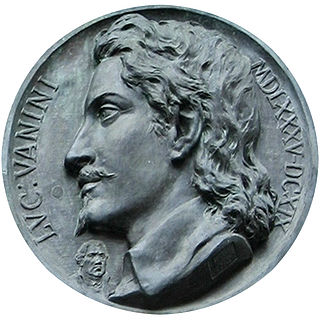
Lucilio Vanini, who, in his works, styled himself Giulio Cesare Vanini, was an Italian philosopher, physician and free-thinker, who was one of the first significant representatives of intellectual libertinism. He was among the first modern thinkers who viewed the universe as an entity governed by natural laws. He was also an early literate proponent of biological evolution, maintaining that humans and other apes have common ancestors. He was executed in Toulouse.
Bullionism is an economic theory that defines wealth by the amount of precious metals owned. Bullionism is an early or primitive form of mercantilism. It was derived, during the 16th century, from the observation that the Kingdom of England, because of its large trade surplus, possessed large amounts of gold and silver—bullion—despite the fact that there was not any mining of precious metals in England.
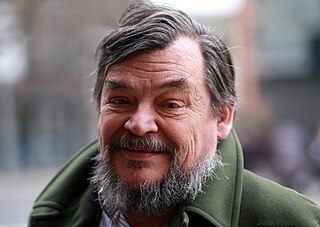
Erik Steenfeldt Reinert is a Norwegian economist, with development economics, economic history and history of economic policy as his specialties.

Benedetto Croce, KOCI, COSML was an Italian idealist philosopher, historian, and politician who wrote on numerous topics, including philosophy, history, historiography, and aesthetics. A political liberal in most regards, he formulated a distinction between liberalism and "liberism". Croce had considerable influence on other Italian intellectuals, from Marxists to Italian fascists, such as Antonio Gramsci and Giovanni Gentile, respectively.
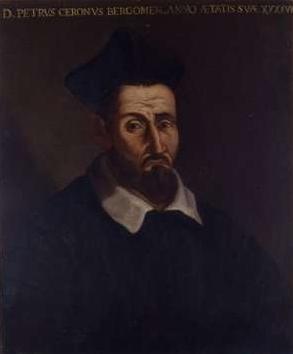
Pietro Cerone (1566–1625) was an Italian music theorist, singer and priest of the late Renaissance. He is most famous for an enormous music treatise he wrote in 1613, which is useful in the studying compositional practices of the 16th century.
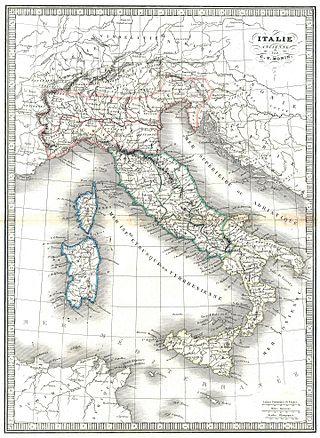
The history of early modern Italy roughly corresponds to the period from the Renaissance to the Congress of Vienna in 1814. The following period was characterized by political and social unrest which then led to the unification of Italy, which culminated in 1861 with the proclamation of the Kingdom of Italy.
The arbitristas were a group of reformist thinkers in late 16th and 17th century Spain concerned about the decline of the economy of Spain and proposed a number of measures to reverse it. Arbitristas directed analyses of problem and proposals ("memorials") for their solution to the king, asking him to take a particular action in the economic or political sphere. The increase in the production of proposals and analyses outlining solutions to the perceived problems of the empire were at a pace comparable to the inflation in the real economy during the price revolution of the sixteenth century and increased further with the crisis of the seventeenth century.

Antonio Genovesi was an Italian writer on philosophy and political economy.

The Italic League or Most Holy League was an international agreement concluded in Venice on 30 August 1454, between the Papal States, the Republic of Venice, the Duchy of Milan, the Republic of Florence, and the Kingdom of Naples, following the Treaty of Lodi a few months previously. The next forty years were marked by peace and economic expansion based on a balance of power within Italy. The decline of the League brought about the Italian Wars.
The word magnificence comes from the Latin “magnum facere”, which means to do something great. The Latin word draws on the Greek “megaloprépeia”. This noun conveys the meaning of doing something great which is fitting or seemly to the circumstance. Magnificence is a philosophical, aesthetic, and socio-economic notion deeply rooted in Western culture since classical antiquity. It regards the greatness of actions, courage, excellence, honor, generosity, and splendor of lifestyles of noble purposes.

Italy has a long history of different coinage types, which spans thousands of years. Italy has been influential at a coinage point of view: the medieval Florentine florin, one of the most used coinage types in European history and one of the most important coins in Western history, was struck in Florence in the 13th century, while the Venetian sequin, minted from 1284 to 1797, was the most prestigious gold coin in circulation in the commercial centers of the Mediterranean Sea.
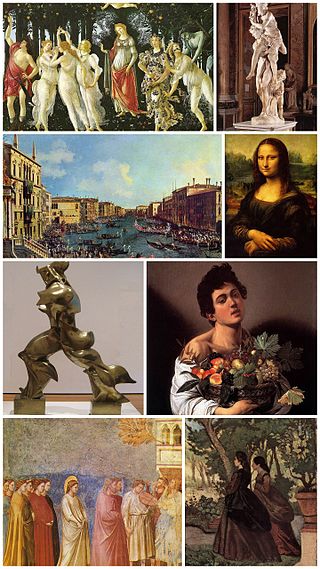
The 1700s refers to a period in Italian history and culture which occurred during the 18th century (1700–1799): the Settecento. The Settecento saw the transition from Late Baroque to Neoclassicism: great artists of this period include Vanvitelli, Canaletto and Canova, as well as the composer Vivaldi and the writer Goldoni.

Sebastiano Biancardi, known by the pseudonym Domenico Lalli, was an Italian poet and librettist. Amongst the many libretti he produced, largely for the opera houses of Venice, were those for Vivaldi's Ottone in villa and Alessandro Scarlatti's Tigrane. A member of the Accademia degli Arcadi, he also wrote under his arcadian name "Ortanio". Lalli was born and raised in Naples as the adopted son of Fulvio Caracciolo but fled the city after being implicated in a bank fraud. After two years wandering about Italy in the company of Emanuele d'Astorga, he settled in Venice in 1710 and worked as the "house poet" of the Grimani family's theatres for the rest of his career. In addition to his stage works, Lalli published several volumes of poetry and a collection of biographies of the kings of Naples. He died in Venice at the age of 62.

The Enlightenment in Italy was a cultural and philosophical movement that began in the second half of the eighteenth century, characterized by the discussion of the epistemological, ethical, and political issues of the Enlightenment thought of the eighteenth century.